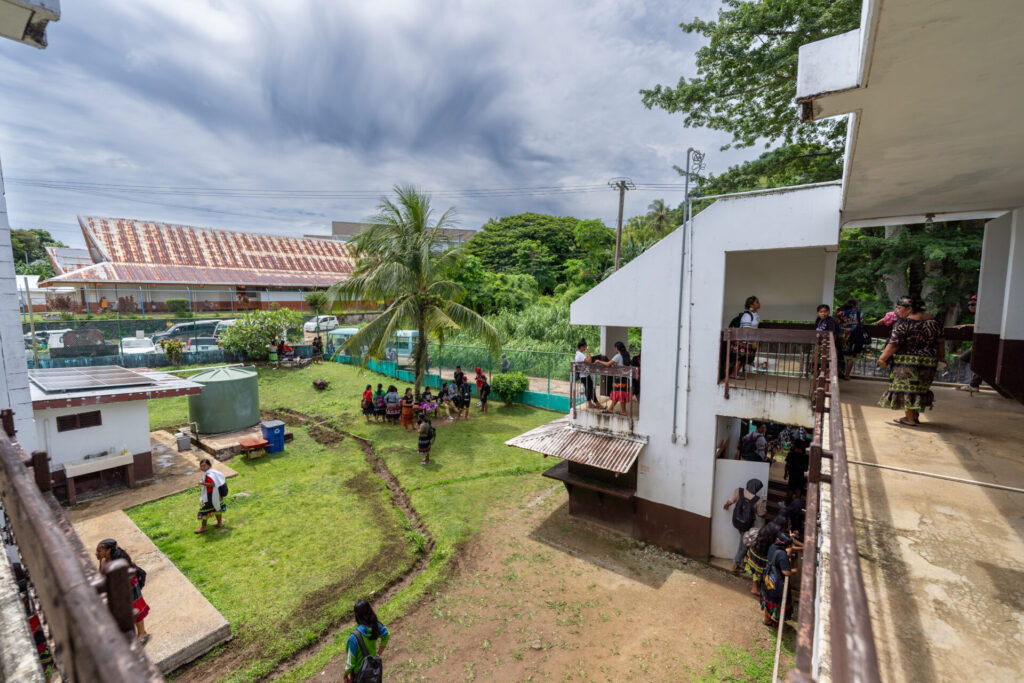At Chuuk High School (CHS), students are taking their first steps toward a career in healthcare – thanks to the school’s new Certified Nursing Assistant (CNA) program, launched in the 2024–2025 school year. Even without a fully equipped classroom or training lab, students are diving into the world of patient care with determination and purpose.
Supported by the National Department of Education (NDOE) through the FSM Skills and Employability Enhancement (SEE) Project, and led locally by the Chuuk Department of Education, the CNA program is helping bridge the gap between school and the growing demand for skilled health workers in Chuuk. In its pilot year, 18 junior and senior students completed the first semester of the CNA training – gaining foundational skills and exposure to the healthcare field.
A Program with Purpose
The CNA curriculum was developed with input from health professionals, so it is grounded in real skills and knowledge. It is open to students in Grades 11 and 12 and covers essentials like infection control, disease prevention, basic therapy, and rehabilitation care. The goal is to prepare students for entry-level roles in healthcare – or to give them a strong foundation for further studies in nursing or public health.
Just as important as the technical content is the focus on professionalism. Students wear a uniform in class and during clinical activities. They follow clear expectations around hygiene, appearance, and behavior – just like they would in a real hospital. For many, it is the first time they’re being treated – and expected to act – like professionals.
Building on What Already Works
CHS is not starting from scratch. For years, the school has run a summer internship program with the local public hospital. What is different now is that students are entering those internships with actual training- ready to help, not just observe.
“Their classroom learning along with internship experiences gives students confidence,” said one teacher. “They’re not just guessing anymore. They know how to take vitals, how to approach patients, how to carry themselves. That changes everything.”

Teachers Getting the Tools They Need
Launching a new program takes more than good intentions – it takes support for teachers too. CHS invested in training for instructors to help them deliver the new curriculum with confidence. The focus is on hands-on learning: giving students time to practice skills, ask questions, and make mistakes in a supportive environment.
Sheena, who teaches in the program, shared: ‘It’s exciting to see students connect what they’re learning in class with what they do during their internships. That connection makes the learning stick – and it keeps them motivated.’
A Growing Pathway for Future Nurses
The CNA program is already changing the way students see their futures. Some are now seriously considering careers in nursing or other health professions. For Chuuk, where the health system needs more trained workers, this program is part of a long-term solution.
With ongoing support from the SEE Project and NDOE, this is just the beginning. More students will have access to the program, more teachers will be trained, and more doors will open for young people ready to serve their communities.
The school continues to invest in refining and implementing the CNA curriculum and strengthening teacher capacity through ongoing training and support during the SEE Project implementation. In the long run, the school aims to offer more students the opportunity to pursue formal CNA certification, opening up pathways to both employment and further health training after graduation.



